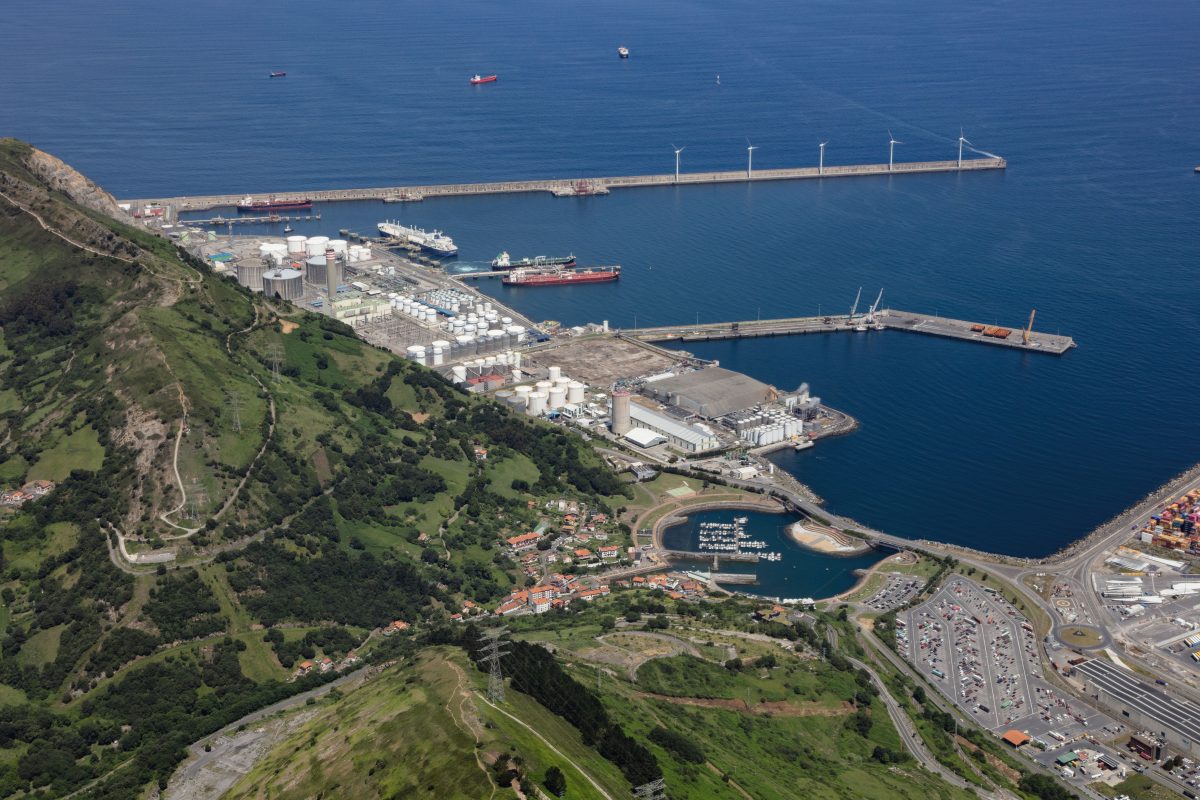The Resilience4Ports initiative has included BilbOPS, the project of the Port Authority of Bilbao to increase the resilience of natural ecosystems and power generation, in its progress report on the Sharm El-Shiekh Adaptation Agenda (SAA), made public at COP27 to monitor maritime resilience breakthroughs.
The report, available in its entirety on the website of the International Coalition for Sustainable Infrastructure (ICSI), was officially released at the ‘Resilience Action’ event held at the COP29 Climate Summit in Baku, Azerbaijan. In the report, particular importance is given to the adoption and deployment of sustainable and resilient strategies in port systems, such as those rolled out by the Port Authority of Bilbao, and port stakeholders are provided with a framework to make the right decisions to enable ports to better anticipate, withstand and recover from disruptions, whilst at the same time keeping their people safe.
Specifically, the report describes the work that the Port of Bilbao has done to improve its resilience and adaptation to climate change, focusing on both environmental sustainability and biodiversity. In its Strategy Plan 2023-2026, the Port outlines a comprehensive approach to becoming ‘green, competitive and responsible’, which entails adapting its infrastructure to better meet the challenges posed by climate change and to ensure that its operations have a reduced environmental impact.
As part of this work, the Port of Bilbao is involved in activities designed to protect and restore natural habitats in its immediate surroundings, working with local conservation groups and government agencies to monitor and maintain the ecological health of the region’s marine and coastal environments. One such initiative is the Port of Bilbao Biomonitoring Plan, an outcome of a collaboration agreement between the Port Authority of Bilbao and the University of the Basque Country / Euskal Herriko Unibertsitatea to assess and monitor the ecological status of the port waters.
Another activity in this field is the roll-out of different innovative pilot initiatives to increase the resilience and biodiversity of the Port of Bilbao, in collaboration with universities and start-ups, with a view to measuring biodiversity in different parts of the port. One action which has been taken forward in this respect is the creation and monitoring of concrete biomimetic micro-reefs, equipped with advanced monitoring mechanisms using robot technology and an information system. The moulded modifying agents create textured surfaces on which marine life develops, enhancing the underwater flora and fauna of the ocean environment.
Another key aspect is the port’s investment in green energy and emission reduction technologies. These include the BilbOPS project, a strategic investment to electrify the docks by deploying Onshore Power Supply (OPS) technology, with 11 connection points. To ensure that the power supplied to shipping companies is green and resilient, the initiative also provides for renewable energy to be generated on site in the port. Initially, four photovoltaic plants will be set up at the ferry and cruise terminals, together with two wind turbines and a battery-based energy storage system. This green energy production centre, which is also open to wave power projects, will be integrated into the OPS grid to be used by vessels at berth and by the port itself.
Co-funded by the European Commission’s CEF Transport programme, the BilbOPS project is just one of a wider range of alternative fuel services and initiatives housed in the Port of Bilbao. These include an LGN filling station, the Basque Hydrogen Corridor (BH2C) and the e-fuel and biofuel plants to be built and commissioned in the port itself.
The BilbOPS project will service 900 port calls per year at the container, ferry and cruise ship docks. When commissioned, it will contribute to the diversification of energy production, boost the resilience of port operations, reduce pollutant emissions and lower noise and vibration levels, thereby having a direct and positive impact on the quality of life of the 125,000 residents in neighbouring towns and 10,000 port workers.
About Resilience4Ports
The Resilience4Ports initiative, led by the International Coalition for Sustainable Infrastructure (ICSI), is the global movement for engineering action on infrastructure sustainability, resilience and climate change. The core focus of the initiative is to build a network of ports and communities to assess, co-create and test solutions across a variety of resilience issues. While the initial focus of the programme will be on ports, given their pivotal role and acute exposure to climate risks, it is intended to be scalable to encompass other elements of the marine system.
On the occasion of Resilience Day at #COP29, Resilience4Ports has launched a call to action for ports to commit to the adaptation and delivery of the Sharm-El-Sheikh Adaptation Agenda and the Maritime Resilience Breakthrough outcome targets of the UN High-Level Climate Champions. This new pledge is the first action-based sectoral commitment by global port stakeholders to improve and accelerate the resilience of port infrastructure, operations and activities to combat the effects of climate change. Those wishing to do so can sign up to this call on the website of the International Coalition for Sustainable Infrastructure (ICSI) website.
The Resilience4Ports initiative is supported by Arup, the UN Climate Change High-Level Champions and the Lloyd’s Register Foundation. Other contributing organisations include the IACP (International Association of Cities and Ports); the CIP (Inter-American Committee on Ports); the IAPH (International Association of Ports and Harbours); the Institute of the Americas; the University of Oxford; the WPSP (World Ports Sustainability Program); the Gambia Ports Authority; the Port of Antwerp-Bruges; the Port of Baku; the Port of Long Beach; and the Port Authority of Bilbao itself.

 Port access
Port access
